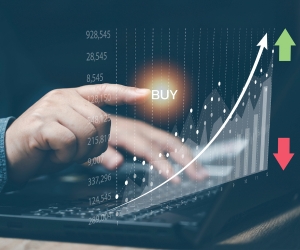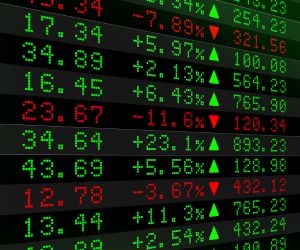This guide delves into the essential aspects of trading the Dow Jones, from understanding the index to exploring various trading strategies. Discover why the Dow Jones is a cornerstone in many investment portfolios due to its diversification and liquidity benefits. Learn advanced techniques such as leverage, pair trading, and algorithmic trading to enhance your trading. We also cover essential tools and resources, including research platforms, educational materials, and trader communities that keep you informed and connected. Additionally, our guide emphasizes the importance of emotional control, robust risk management, and continuous learning to successfully navigate the complexities of the market. Finally, we offer practical insights to guide you in creating a detailed trading plan and leveraging technology to refine your strategies. Dive in to equip yourself with the knowledge and tools necessary to successfully trade the Dow Jones.

How to Trade the Dow Jones Index
The Dow Jones Industrial Average (DJIA), commonly known as the Dow Jones, is one of the most important stock indices in the world. Comprising 30 of the leading U.S. companies, it serves as a key barometer of the performance of the U.S. economy. Its stability and moderate volatility make it a popular asset for both long-term investors and active traders.
Characteristics of Dow Jones in Trading
Price-weighted index: Unlike the S&P 500, the Dow Jones gives more weight to stocks with higher prices, influencing its movement.
Moderate volatility: While it has fewer extreme swings than the Nasdaq, it still presents opportunities for daily trading.
High liquidity: It is one of the most liquid indices in the world, allowing for tight spreads on trading platforms.
Trading hours: It trades on the New York Stock Exchange (NYSE) and the NASDAQ, with hours from 9:30 to 16:00 (ET), although futures and CFDs markets allow almost 24/5 trading.
Instruments to Trade the Dow Jones
Dow Jones Futures: Traded on the CME Group, they are used by institutional and professional traders.
Dow Jones CFDs: A popular option among retail traders, allowing leverage speculation.
Dow Jones ETFs: Exchange-traded funds like the SPDR Dow Jones Industrial Average ETF (DIA) replicate its performance.
Dow Jones Options: Used for hedging strategies and speculation with controlled risk.
Trading Strategies for the Dow Jones
1. Wall Street Opening Trading
The first hour of trading is usually the most volatile due to the inflow of accumulated orders during the Asian and European sessions. Key strategies:
Opening breakout: Identify supports and resistances formed in the pre-market and trade in the direction of the breakout.
High volatility scalping: Use short-term moving averages to identify trends in the first few minutes.
2. Trend Following Strategy
The Dow Jones often moves in marked trends, especially in prolonged bull markets. Recommended tools:
Moving Averages (50 and 200): Crossovers between these averages can signal trend changes.
ADX (Average Directional Index): Allows confirmation if the trend is strong enough to continue trading.
3. Pullbacks and Reversals
The Dow Jones tends to correct after strong moves. Recommended strategies:
Fibonacci: Use 38.2% and 61.8% retracements to enter in the direction of the trend.
RSI: Identify overbought or oversold conditions at extreme levels (70 or 30).
4. Correlations and External Factors
The Dow Jones is highly influenced by economic data and other global indices:
U.S. indices: Movements of the S&P 500 and Nasdaq often influence its direction.
Treasury bond yields: Higher rates can affect the valuation of companies in the index.
Economic news: Data such as the employment report (NFP) or Fed decisions can cause abrupt movements.
Risk Management When Trading the Dow Jones
Use of Stop-Loss: Essential to protect against rapid movements of the index.
Responsible Leverage: Avoid positions with an excessive risk level.
News Monitoring: Stay alert to U.S. economic events and Fed decisions.
Trading Psychology: Avoid overtrading and stay true to your trading plan.
SWOT Analysis of the Dow Jones
This SWOT analysis evaluates the Dow Jones, one of the most representative stock indices in the US, which includes 30 large industrial and service companies, reflecting the strengths and challenges of the US economy.
Strengths:
Concentration of leading companies: The Dow Jones includes companies with a solid track record, enhancing its representativeness.
Liquidity and visibility: It is one of the most followed indices globally, attracting a wide investor base.
Weaknesses:
Exposure to the US economy: The concentration in the US makes the index vulnerable to internal crises and fiscal policy changes.
Limited representativeness: With only 30 companies, it may not reflect the entire diversity of the US economy.
Opportunities:
Innovation and sectoral growth: Investment in technology and innovation sectors can drive index growth.
Attraction of foreign investment: The continued attractiveness of the US as an investment destination can strengthen the Dow Jones.
Threats:
Global instability: International crises and geopolitical tensions can affect the US economy and, consequently, the index.
Changes in monetary policies: Decisions by the Federal Reserve can generate volatility in the Dow Jones.
What is an International Stock Broker?
An International Stock Broker is the entity (or platform) that allows you to buy and sell shares of companies listed on stock exchanges in various countries around the world. Unlike a local brokerage firm, the primary focus of International Brokers is to offer access to global markets such as the United States, Europe, or Asia.
Why do we need an International Stock Broker?
Investing in international stocks can be an excellent way to diversify your portfolio, as it provides the opportunity to participate in the growth of economies and sectors worldwide. However, operating in global markets is not as straightforward as in the local market: it requires specific knowledge, compliance with international regulations, and the use of advanced trading platforms.
An International Stock Broker brings all these investment opportunities together in one place and allows you to access different exchanges and trading conditions in exchange for a commission.
Examples and comparisons:
There are several well-known International Stock Brokers, such as Interactive Brokers, eToro, TD Ameritrade, or Saxo Bank, among others. Each offers trading platforms with unique features and commissions that vary depending on the service. Some stand out for providing market analysis and advice in several languages, while others may offer more competitive operational costs or social investment tools. These details allow you to choose the option that best suits your needs and investor profile.
Regulatory and security aspects
It's essential that the International Stock Broker you choose is regulated by recognized entities in the country where it operates, such as the U.S. Securities and Exchange Commission (SEC) in the United States, the Financial Conduct Authority (FCA) in the United Kingdom, or the Securities and Exchange Commission (CVM) in Brazil, among others. This oversight ensures that the broker complies with strict security and transparency standards, providing greater confidence when investing your money.
How do Brokers “connect” to International Markets?
Through agreements with foreign stock exchanges and the use of advanced technological platforms, International Stock Brokers process the buy and sell orders placed by their clients. They order the transactions according to price, arrival order, and other parameters, charging a commission when the transaction is executed. This technological infrastructure enables operations to be carried out quickly and securely, facilitating real-time tracking of your investments.
In conclusion, an International Stock Broker is your gateway to the world's most important stock markets. Thanks to their regulation, trading platforms, and knowledge of global markets, you can diversify your portfolio and seek growth opportunities in different sectors and countries.





